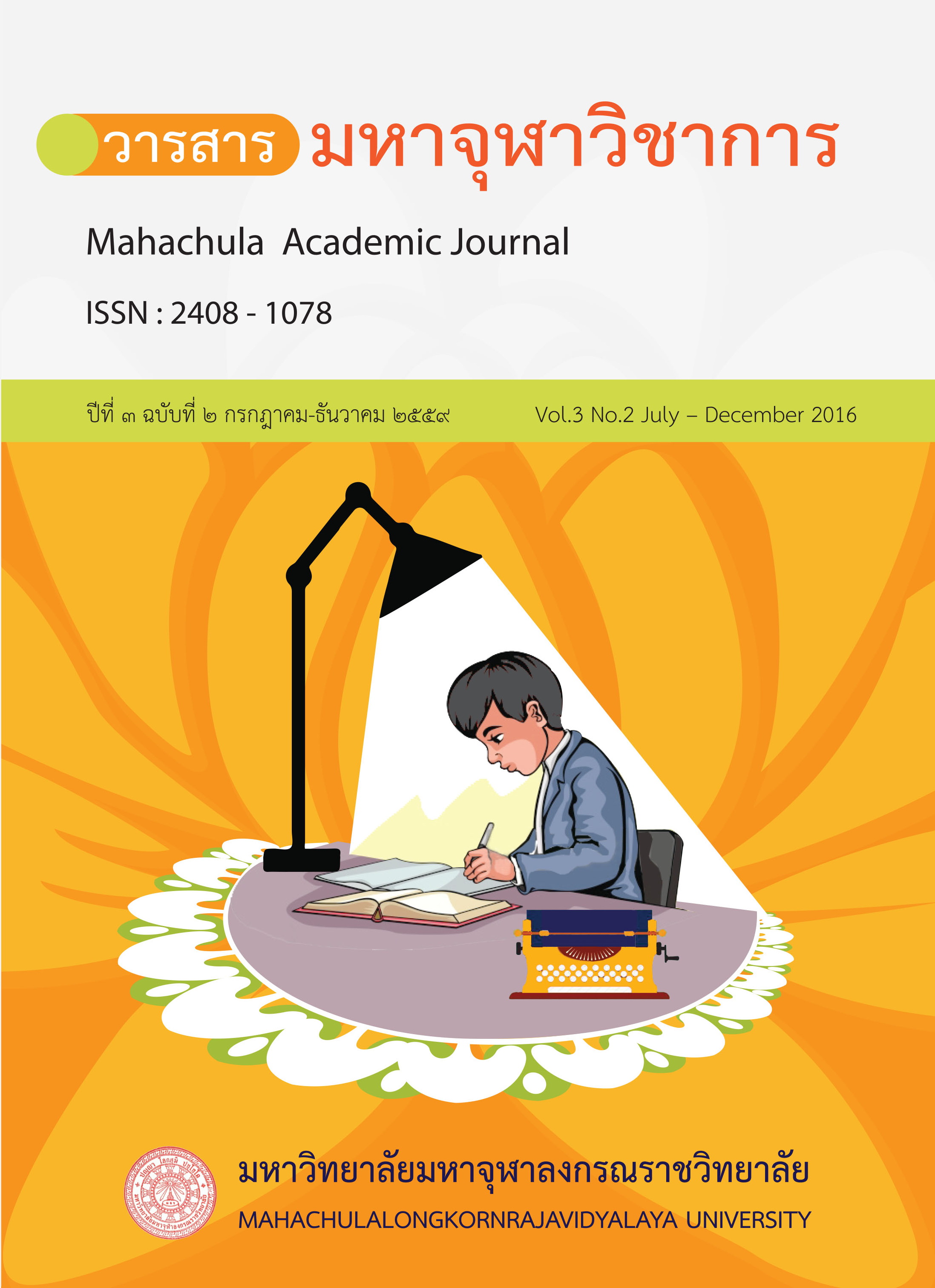The Human Capital in the Buddhist Economy
Main Article Content
Abstract
Human has been regarded as most important capital for proceeding to the destination of the organization. It can be said that human is only living thing in the world being full of abilities to produce or create several kinds of knowledge and innovation in order to develop oneself and every item surrounding with great wonderful brain which is considered as inner property or Intellectual Capital, also Intangible Asset. In this connection, human gains benefits especially in the age of globalization. Although the current society and economy are facing the age of knowledge-based economy in which both public and private sectors are paying
a great attention in the field of human capital and administration; but it is still
not good enough for now. Human capital still needs to be developed and driven
in the proper way in order to reach the settled destination. Additionally, both public and private sectors are still looking forwards to such developed human capital for
the sake of attaining the organization’s objectives. Hence, in the present situation
of economy, the successfulness of whole organization in both public and private
sectors has been depended on the human capital, especially knowledge, skill and competency including experiences which currently become to be powerful factor in order to proceed to attain the settled objectives. On the other hand, knowledge, skill and competency including experiences are considered as “Human Capital.”


